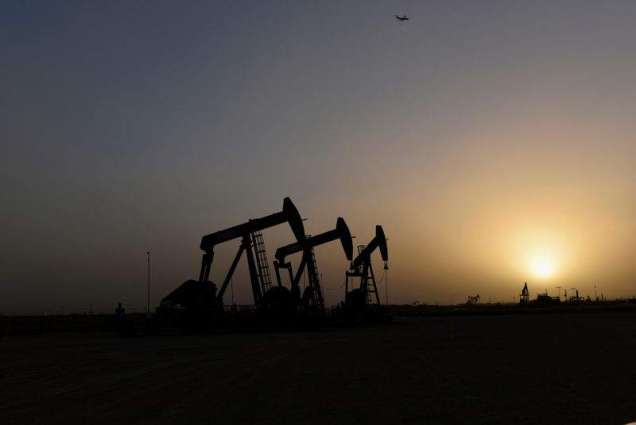Oil prices rose above $70 per barrel on Monday, trading at near four-month highs as Washington and Tehran exchanged strike threats after the US killing of an Iranian general raised fears of war in the world's top hub for crude production
NEW YORK (Pakistan Point News / Sputnik - 06th January, 2020) Oil prices rose above $70 per barrel on Monday, trading at near four-month highs as Washington and Tehran exchanged strike threats after the US killing of an Iranian general raised fears of war in the world's top hub for crude production.
Brent, the global benchmark for crude, was up 59 cents, or 0.9 percent, at $69.19 per barrel by 10:40 AM ET (15:40 GMT), as oil traders sent prices of the commodity higher in the aftermath of the drone attack near Baghdad airport on Friday that killed Qassem Soleimani, the commander of Iran's Revolutionary Guards' Quds force.
Since Soleimani's killing, Iran has said it was abandoning limits to uranium enrichment, a step required for making nuclear weapons. Iraq's parliament, meanwhile, wants to expel US forces from the country, prompting President Trump to threaten Baghdad with sanctions. Rockets also fell all over Iraq on Monday, with no human casualties reported. Separately, fighting has also broken out in Libya.
Brent hit a session peak of $70.75 earlier on Monday, responding to all these. The last time it reached those levels was in the aftermath of the mid-September air raid on Saudi Arabia's oil facilities in Abqaiq, an attack the United States had accused Iran of masterminding.
"The situation today is very different from the attack on Abqaiq," said Olivier Jakob at oil risk consultancy PetroMatrix in Zug, Switzerland. "After the attack on Saudi Arabia, both the United States and Saudi Arabia rapidly toned down instead of escalating. The opposite is true today, with both Iran claiming revenge and President Trump threatening to blow Iran apart."
Iran, Iraq and Libya, along with Saudi Arab, are among the largest oil producers in the middle East, which accounts for 40 percent of the world's crude supply. Oil traders fear a breakout of war will seriously hamper movement of crude from the region to the rest of the world. Middle East crude supplies are already expected to be tighter this year than in 2018 due to sharper production cut pledges by the Organization of the Petroleum Exporting Countries and its top ally Russia under the so-called OPEC+ initiative.
Aside from Brent, West Texas Intermediate (WTI), the US crude benchmark, was up 34 cents, or 0.5%, at $63.39 per barrel. Earlier on Monday, WTI reached a more than eight-month high at $64.72.
Oil prices closed 2019 with their large gains in three years. Brent rose 24 percent on the year while the West Texas Intermediate gained 34 percent.
Iran and the United States have exchanged strike threats in recent days, with the Ayatollah vowing "harsh revenge" and Trump saying he has identified 52 targets in Iran, including sites of cultural prominence, in a counter attack that may be "disproportionate."



